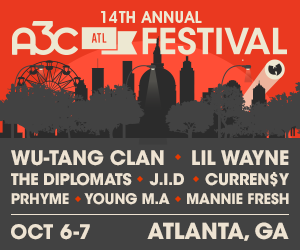
Soulja Boy Tell ‘Em has long been underrated in regards to his acumen as both an artist and businessman. Although he rarely gets his due credit, Soulja Boy is the greatest hip-hop innovator and businessman of the millennial generation. Before there’s an uproar due to this statement, let’s take some time to review the facts.
Soulja Boy Tell ‘Em started his career at just 14 years old, teaching himself how to write, rap and produce beats. In the mid 2000’s he began posting his recordings on a number file sharing sites including Soundclick and Limewire, as well as social media outlets like MySpace and Youtube. Very few artists were looking toward the internet as a means of building a fanbase during Soulja Boy’s initial rise to fame, but many of these tactics can be seen in development techniques today; artists like Father of Awful Records and iLoveMakonnen represent a new wave of creatives following the self-taught, self-promotion role. By posting creations to their personal Soundcloud pages, they garner hundreds of thousands of followers and millions of views for a more efficient direct-to-consumer experience. None of this would be possible if Soulja Boy hadn’t paved the way.
Aside from marketing strategies, Soulja Boy also broke the mold of what hit records in hip-hop must sound like to be successful. Soulja Boy’s bubble-gum, snap dance themed records were initially panned by hip-hop lovers due their lack of traditional song structure, simplified hooks and lackluster lyrics, but those same songs work as a template for hit records in today’s hip-hop. For example, the Migos’ breakout single Versace follows the same composition pattern as a number of Soulja Boy singles (such as “I Got Me Some Bapes”), with ear-numbingly repetitive hooks, bass heavy production, and melodies nostalgic of grade school nursery rhymes. By watering down lyrical content and producing catchy refrains that are effortlessly memorized, both Soulja Boy and the Migos were able to create songs that break beyond a singular demographic (based on age, class, or even race) and reach a much broader audience. Soulja Boy is a martyr for hip-hop stars today, with his Billboard Hot 100 #1 hit “Crank That” proving that ringtone music can have a mainstream appeal and be extremely profitable.
Lastly, Soulja Boy has continuously proven to us that he is an entrepreneur with a business acumen comparable to the likes to Jay-Z, Puff Daddy and Russell Simmons. During his initial wave, Soulja Boy capitalized on his chart success by selling over a million “Crank That” ringtones, selling millions of digital single downloads, and by signing a joint venture contract with the clothing company Yums to help design and promote their apparel. Not only that, Soulja Boy continues to be a highly sought after producer, recently earning a production credit (he’s credited as Deandre Way) on the track “Hold Up” from Beyonce’s Lemonade album. Aside from these ventures, Soulja boy also owns his own record label, Stacks on Deck Entertainment, and begun an acting career. To top it off, Soulja Boy recently announced that he’s signed an endorsement deal with World Poker Fund Holdings worth up to $400 million in potential stock value.
So with all that being said, why does Soulja Boy not get the respect he deserves as a musician and businessman? One may argue that it’s because the music he produces isn’t of the highest quality, but with the current state of mainstream hip-hop, how are his efforts any worse than a majority of the sounds we hear on an everyday basis? Some may also argue that his business ventures are based primarily off of gimmicks and trends, but is the ability to take advantage of such things not a key trait of all successful moguls? Maybe it comes down to Soulja Boy’s branding and appearance. People may still be stuck on the older image of him, wearing the whited-out sunglasses and tall tees. Regardless of how people may feel about him, the truth is Soulja Boy has paved the way for an entire generation of artists finding fame and success from the internet. As a martyr for the culture, Soulja Boy has done a lot more for current hip-hop than many artists from the Golden-Era in the 90’s.



